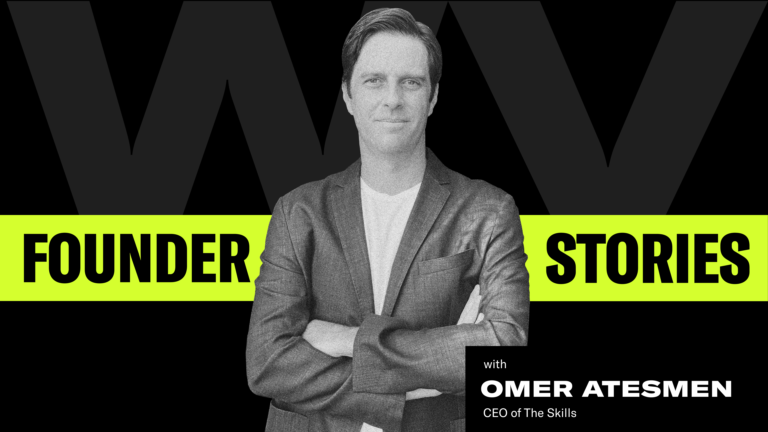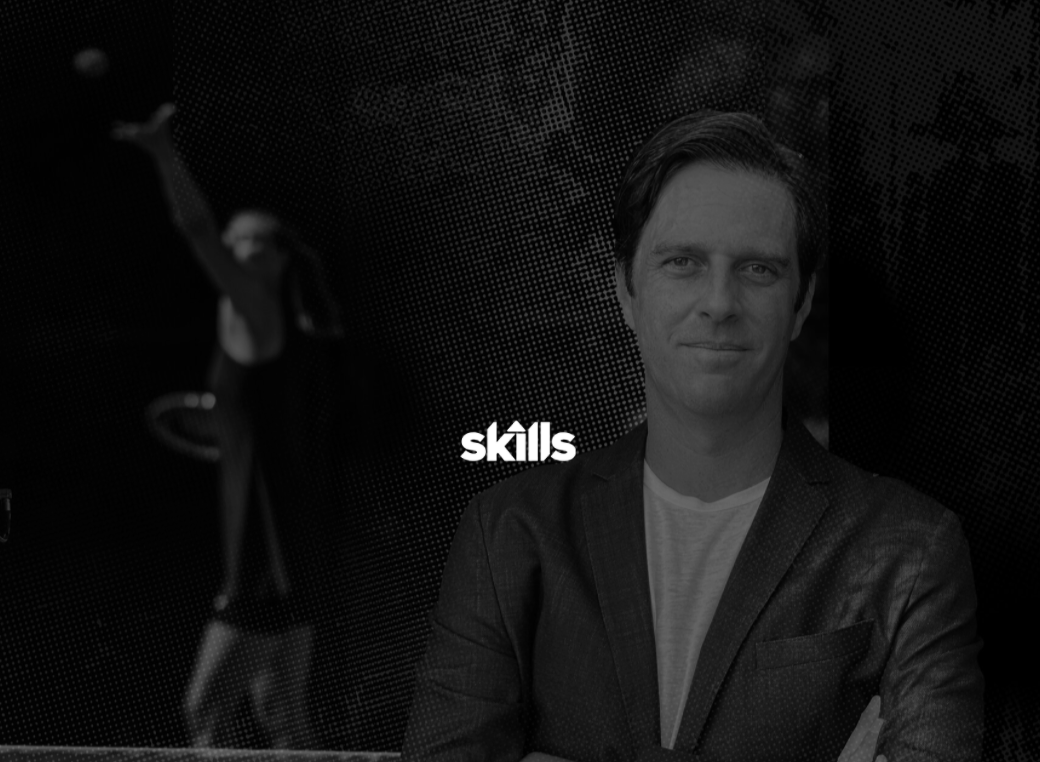Democratizing Education in Sports & Wellness with Omer Atesmen
CEO of The Skills

The Skills connects the world’s greatest athletes to the next generation of talent. Founder and CEO, Omer Atesmen joins us to share the story behind his vision to democratize education across sports & wellness, how The Skills approaches partnerships with athletes, his take on what’s next in e-learning, and more.
What’s the origin story behind The Skills?
Omer Atesmen: The idea started when I was in Japan visiting with my wife as the Olympics were coming up (before they were eventually postponed).
I’d been following ed-tech, and I really liked seeing the overall democratization of education. Within that, there was also a democratization of insight from individuals that historically had been very difficult to access. I came back from that trip wondering why we didn’t have anything to democratize education within sports and wellness.
It’s a shame that Muhammad Ali never taught the jab, and that we don’t have some of the greats leaving their legacy as far as what they’ve become known for in their sport. Prior to COVID, we recognized the trends within ed-tech, the gap within sports & wellness. Now, trends have accelerated and consumers really understand the power of online education.

How is The Skills democratizing education within sports and wellness?
OA: At the end of the day, the problem is access. I swim occasionally and there’s no chance I could have learned from Michael Phelps. Even if I had visited a camp of his, there’s a limited number of spots and it’s usually very expensive. From the user side, our goal is to provide access to the insights, both in sport and in life.
With increasing amounts of data, we’re starting to see interesting trends with what the users are watching and how they’re engaging. For example, we have users that come in just for one person, like Michael Phelps’s and his swimming course. Others are more generalists, they’re interested in lessons that cut across various sports and athletes. Looking ahead, this data informs everything, from the lessons, to the product, to what athletes we’re reaching out to next.
Second, there’s an aspect of connection. It’s a very passive activity to sit in front of your computer and watch a lesson. A lot of our product thinking happening now, is how do we give the user more connection to the athlete? There’s a lot of interesting tests we’re doing behind the scenes and things that may be rolled out in the next couple of months that lend the ability for the user to ask questions, engage more. Overall, the product is evolving both from a content perspective and an engagement perspective.

How does The Skills approach collaborating with athletes?
OA: From the athlete’s side, when we started reaching out early on to Michael Phelps, Maria Sharapova, and Shaun White, it was of course a little intimidating, but by the same token, there’s still very little offerings that provide the opportunity for athletes to monetize something that they’re best known in their field of play – their skills, technique, fundamentals, work ethic and everything they’ve learned along their career.
Maria Sharapova, who’s our Chief Athletic Officer said it pretty well when she said, “One of the main reasons I joined the skills was because it’s one of the few chances I have to work with a company where I’m not told what to do or say.”
When they’re working with brands, the brand has an image. The brand has a tagline. The brand has a plan for what they want the athletes to do for them. In our case, it’s inverted. We come to them and we say, we want you to be authentic. We want you to tell your story. We want you to teach and that’s it. And of course there’s an opportunity to monetize just like an artist would on Spotify or platforms like that, and so it’s worked out really well. We have a great oversupply problem on the athlete side at this point.

As a founder building in the space, what’s your perspective on the future of e-learning?
OA: It’s very easy to see some of the challenges of building a company in the e-learning space. From the beginning, you can look at any given product and say that retention rates are low. At the same time, it’s also really easy to see the potential and room for innovation. We’re moving away from just handing users knowledge and content. This next phase of e-learning is elevating what we enable users to do with that knowledge to become better. There’s a lot of product enhancements we’re thinking about to deliver, track, and ensure that people are loving what they’re getting and using it to actually benefit themselves.
If we can break that barrier to where they’re seeing improvement and value, things will work out.

The Skills is not just about sports, it’s about the power of sports and how it impacts many different aspects of life. What’s the inspiration behind that mission?
OA: We don’t forget the fact that only so many people, despite their desires to be a professional basketball or soccer or tennis player, have the ability to play at that level. There are a lot of the skills that you learn from sports that translate into all the careers you might have.
If you listen to some of the lessons that Michael Phelps, Maria Sharapova, or Shaun White teach, there’s such a common thread through them about commitment, overcoming adversity, and mastering the fundamentals. In this day and age, it’s pretty easy to jump from one thing to the next. But what you’ll see is none of these people did that. If you have a passion or career, the lessons that these athletes teach, they’re not specific to their sport. They’re about how to become better at whatever you do.
Even with my young kids, I want them playing sports so that they can learn how to get up when they fall down and learn how to be a better teammate, because I think that’s going to be good for them in life.
We ask our athletes to spend almost half their time talking about non-technical skills. Of course, you’re going to learn about butterfly and breaststroke from Michael Phelps, but you’ll learn all the other stuff, the intangibles and maybe even find more value out of those.